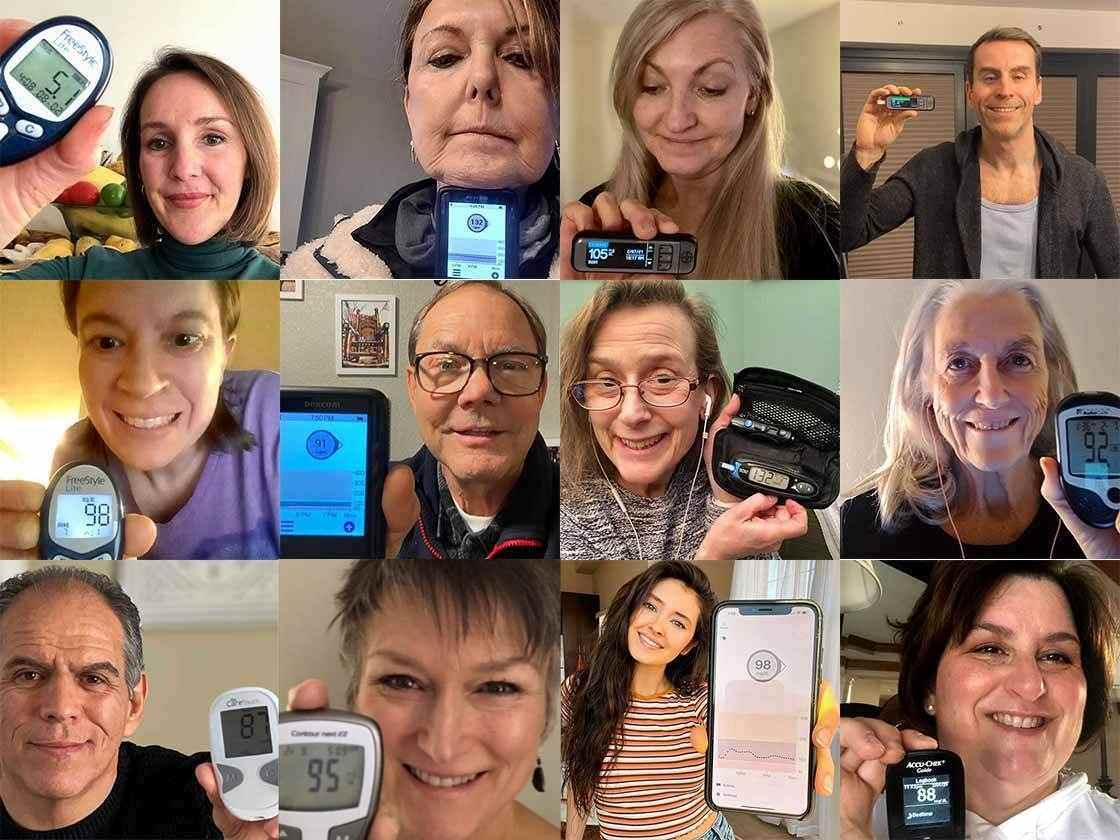Living With Heart Disease
Living with heart disease is anything but new to Don Pressnell. Over the past 25 years, Don followed his doctor’s orders to a tee, only to find that his metabolic health had worsened over the course of time.
But in February 2017, this story took a turn for the better.
Don’s health struggles began in 1994 when he was diagnosed with heart disease. Four years later, he was diagnosed with type 2 diabetes.
Over the years, Don accrued 9 stents, his A1c ranged between 8.0 and 11.0%, and he eventually started using 1000mg of Metformin and 110 units of Lantus insulin per day to control his blood glucose.
In an act of desperation, Don enrolled in a clinical trial in 2015 to gain better control of his blood glucose, given that a growing list of medication didn’t seem to help. But even that made no significant difference.
In December 2016, a nuclear stress test showed that part of Don’s heart was receiving a limited blood supply. A follow-up heart catheterization test in February 2017 showed coronary artery blockages.
He was told he needed 6 coronary artery bypass grafts to prevent heart disease from getting worse, and was never told that he could actually reverse heart disease altogether.
In the midst of this alarming news, Don stumbled across the Mastering Diabetes Online Summit.
Don and his wife watched the Mastering Diabetes Online Summit interviews together, and decided to give low-fat, plant-based, whole-food nutrition a try.
Given that Don had been told to limit carbohydrate intake for many years, he was admittedly apprehensive to venture into the world of low-fat, plant-based, whole-food nutrition.
However, armed with new information and a willingness to try, Don committed to changing his lifestyle as an alternative to bypass surgery.
After only 1 week of eating a low-fat, plant-based, whole-food diet, Don found that his insulin needs dropped from 110 units per day to 35 units per day, a 68% reduction in the first 7 days.
His A1c was 8.4% in February, and as his blood glucose began to normalize he grew increasingly excited that his A1c could approach 6.0% without the use of medication.
When it comes to managing his weight, Don has always struggled. For most of his adult life, Don weighed approximately 215 pounds.
Having tried various weight loss programs – ranging from frequent exercise to diet pills to Weight Watchers – Don always found himself yo-yo dieting, chasing any fad that could help him lose weight and reverse heart disease.
But one thing he noticed is that every time he lost weight, as soon as he changed his eating regimen, his weight came right back. On many occasions, he gained more weight than he lost, exacerbating type 2 diabetes and heart disease at the same time.
This time things were different.
Don’s weight dropped from 215 pounds to 165 pounds in approximately 6 months eating a low-fat, plant-based, whole-food diet without calorie counting or portion control.
Don admits that he was unaware of how poorly he felt in his previous medication-dependent life, but given his current state of health, he has become aware of how bad he felt previously – and more importantly, how fantastic he feels now.
He thinks more clearly, his mood is better, and he has more energy than he has had in years. He has completely eliminated his use of insulin, and controls his blood glucose without the use of medication.
The best part is that Don avoided bypass surgery altogether, and his cardiovascular health has significantly improved. His total cholesterol has dropped from 230 mg/dL to 99 mg/dL, and his LDL cholesterol (the lipoprotein correlated with the highest risk for heart disease) dropped from 170 mg/dL to 63 mg/dL.
Don expects to discontinue all cardiovascular medications within the next few months, and become medication-free for the first time in 25 years.
The table below summarizes the changes in Don's metabolic health over the past 9 months:
Biomarker | February 2016 | November 2017 |
|---|---|---|
Bodyweight (pounds) | 215 | 165 |
Fasting BG (mg/dL) | 160 | 120 |
HbA1c (%) | 8.4% | 6.1% |
Total Cholesterol (mg/dL) | 230 | 99 |
LDL Cholesterol (mg/dL) | 170 | 63 |
Lower Your A1c and Get to Your Ideal Body Weight ... Guaranteed

Your results are guaranteed. Join more than 10,000 ecstatic members today
Personalized coaching puts you in immediate control of your diabetes health, helps you gain energy, improves your quality of life, and reduces or eliminates your meds.
Do You Have a Story to Share?
Leave a comment below and tell us if you want to be featured on our website. We'll do our best to make you world famous!

